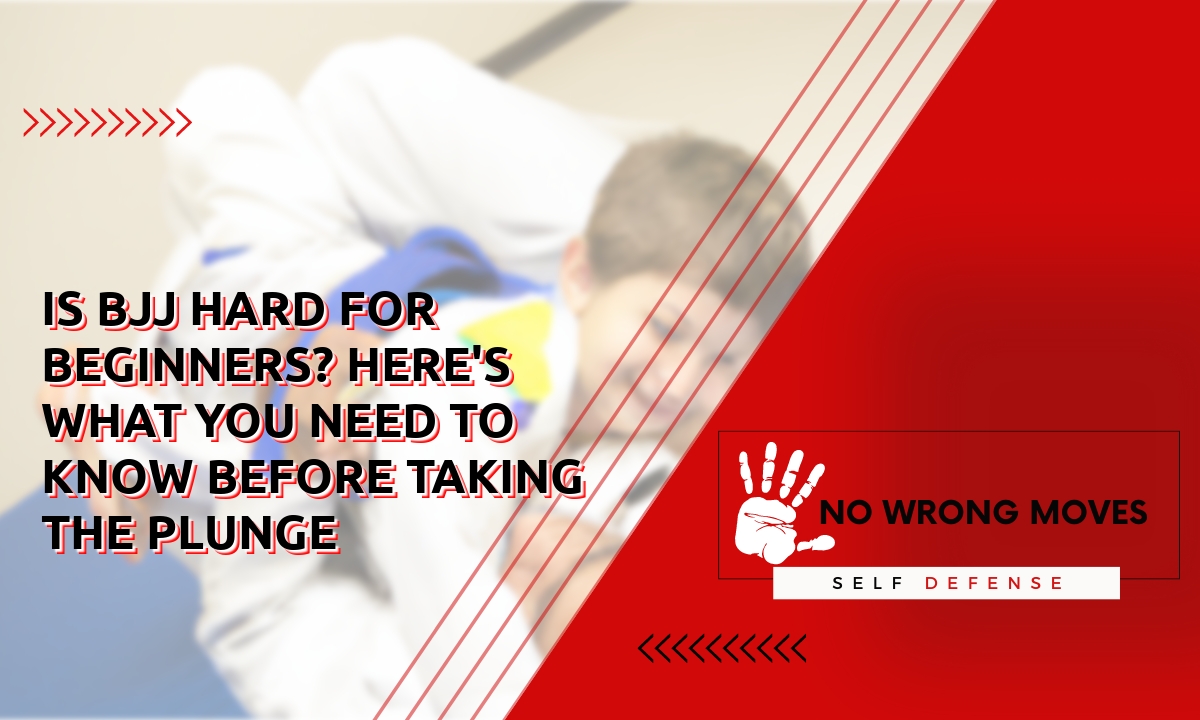
There aren't many ways to take care of yourself better than learning a martial art. And when it comes to martial arts, there aren't many that are quite as good as BJJ. It's an efficient, effective discipline with a lot of renown to its name--and for good reason.
But it is also daunting. In fact, it's even infamous for being one of the hardest martial arts to learn out there. Today, we'll be looking exactly into why that is.
Is BJJ Even Hard in the first place?

Make no mistake: BJJ is every bit as hard as everyone is making it out to be. You have to push yourself every single session, study and practice every new technique you learn, and find the motivation within yourself to be a better jujitsuka every single time you hit the mats.
Compared to other martial arts, BJJ is commonly cited as being particularly difficult. Oftentimes, the only other martial arts that can compare are ones like judo, which is a close sister of BJJ, and mixed martial arts, which already implements BJJ techniques in the first place.
But the challenge of BJJ is part of why it's also so rewarding. It's got a myriad number of benefits, like keeping you fit, giving you boosted self-esteem, and teaching you how to defend yourself properly. None of this will come on its own, nor will it ever come easy.
It'll take a lot out of you, both in terms of physical endurance and mental focus, in order to understand the intricacies behind each move, and then execute them all perfectly.
So yes, BJJ is hard. Be sure not to underestimate it!
BJJ Is Awkward at First

This is arguably the single, most prominent factor for why BJJ is so hard. Let's put it into perspective: BJJ is a grappling sport first and foremost. Right off the bat, that adds an extra layer of difficulty for anyone who wants to get into it.
Most martial arts you can think of probably involve striking of some kind: boxing involves punches, taekwondo involves kicks, muay Thai makes use of your knees and elbows. People are fairly used to striking in martial arts.
But BJJ is a different beast entirely. It involves ground fighting, with lots of movements that will feel awkward and counterintuitive at first. After all, if you're fighting against someone, your first instinct isn't to get down on the ground to grapple with them, is it?
This problem is exacerbated by just how awkward some moves look or feel. Take a look at the hip escape, or "shrimping," which requires seemingly strange positioning and involves unimpressive movements that don't even look fit for martial arts at first glance.
You associate martial arts with powerful moves--punches, sweeps, and headbutts. A move that's often compared to moving like a shrimp on the ground... doesn't evoke that kind of power.
But anyone who's been to their fair share of sessions knows how effective these moves can be. They know not to doubt them, and they're trained on how to apply them, no matter how awkward, uncomfortable, or downright silly they might look to an onlooker.
That's something you'll just have to get used to in BJJ. Things will definitely feel strange at first, but it'll get better over time.
BJJ Is Incredibly Demanding... for Both Mind AND Body

BJJ is incredibly physically demanding. You're going to run into strains, hyperextensions, and a plethora of other injuries in your time here, which you'll have to get used to given the nature of full-contact grappling.
You will get bruised. You will feel mat burn. There will be swelling, compression, strain in your head and neck, especially as your opponent will likely try to grab you there. You'll most likely get at least one injury in your upper or lower body, or both, before you get to the higher ranks.
There's a whole bunch of other painful things that you'll either see other people endure or endure for yourself in BJJ. The risk of injury will always be there.
And even if they weren't, you'll still need to content with the soreness from pushing your body so hard every session. Energy expenditure in BJJ can get pretty insane, and you'll likely burn around 500 calories every 90-minute session.
That's just the physical demands. BJJ is notoriously complex, at least when compared to other martial arts, and you'll need focus and rigorous practice in order to master a specific move.
And there's a lot of moves, mind you. Many of them don't even have significant overlap to them. A boxer may have an easy time transitioning from crosses to uppercuts, but try and find a jujitsuka who can do well at guard passing just because he's good at leg locks.
To make matters worse, BJJ is constantly evolving and changing. There's always new information coming in, and you'll always have something new to figure out or master. Eventually, some jujitsukas learn that it's just not possible to learn everything, even if they were given a lifetime.
You Need Tons of Commitment

Going to your dojo whenever it's convenient just isn't good enough in BJJ. You'll need to go in consistently and diligently in order to see progress.
That's not something everyone can give--which is fine, of course. Some people lead hectic lives, and some others only take BJJ as a hobby. But you should temper your expectations to account for how often you train.
If you really want to get good, then you should be training three times a week, two at minimum. Of course, the more you can train, the better.
Plus, let's be honest. We're not just looking at the time you spend in your dojo here. We've got to factor in prep time, travel time, shower time, and even meal prep if you've got a diet plan for BJJ (which you should!).
And we're not just looking at the time you punch in day-in and day-out either. It will take years upon years before you achieve mastery in BJJ, which can be... off-putting to some, to say the least.
All-in-all, you're looking at devoting a huge chunk of your life into BJJ. You will lose evenings. You will your schedules around. You will have a hard time finding time to train on some days. But if you show BJJ that you love it, then it'll love you right back.
The Wrap-Up
If you're just getting started with BJJ, then don't worry. You will be trained and guided. You may be facing intense hardship, but you'll never run into anything that you can't handle. BJJ is worth it, so just focus on how badly you want this!
And if you're already in BJJ, then focus on your reasons to stay. You've come this far, which means there's something keeping you around--whether it's your fitness goals, or your desire to protect yourself, or even just your overall interest in the sport.
Remember to always remember the bright side of things, even when things get really tough. BJJ will always be difficult, but whatever you give it, it'll give back to you tenfold.
Curious what the number one deadliest martial art is? Click here!
[author-box-jpx-fitness]
